FMA’s 2024 in Publications
Between the steady rise of artificial intelligence and the surging cases of online fraud, the year 2024 expanded and challenged the Filipino public’s understanding of internet rights. The rising incidents of identity theft and online scams alone created numerous discussions on privacy and data protection. This vulnerability to cyber crimes also put into question the effectiveness of policies like the SIM Card Registration Bill and the National ID in safeguarding every Filipino’s sensitive information. Meanwhile, the lack of reliable and affordable internet connection remains a major concern among Filipinos as more people rely on digital services and transactions.
As an organization dedicated to promoting awareness on digital rights and safety, we are heartened by the growing consciousness among Filipinos about their online rights. The collective effort to foster safer and more inclusive digital spaces embodies the spirit of FMA’s advocacy for a better Internet.
In this spirit of collaboration and shared learning, we are pleased to present our research papers and reports from this year, through which we hope to enrich the Filipino people’s grasp of digital rights, strengthen their capacity to navigate online spaces safely, and inspire collective action towards a more secure and equitable digital future.
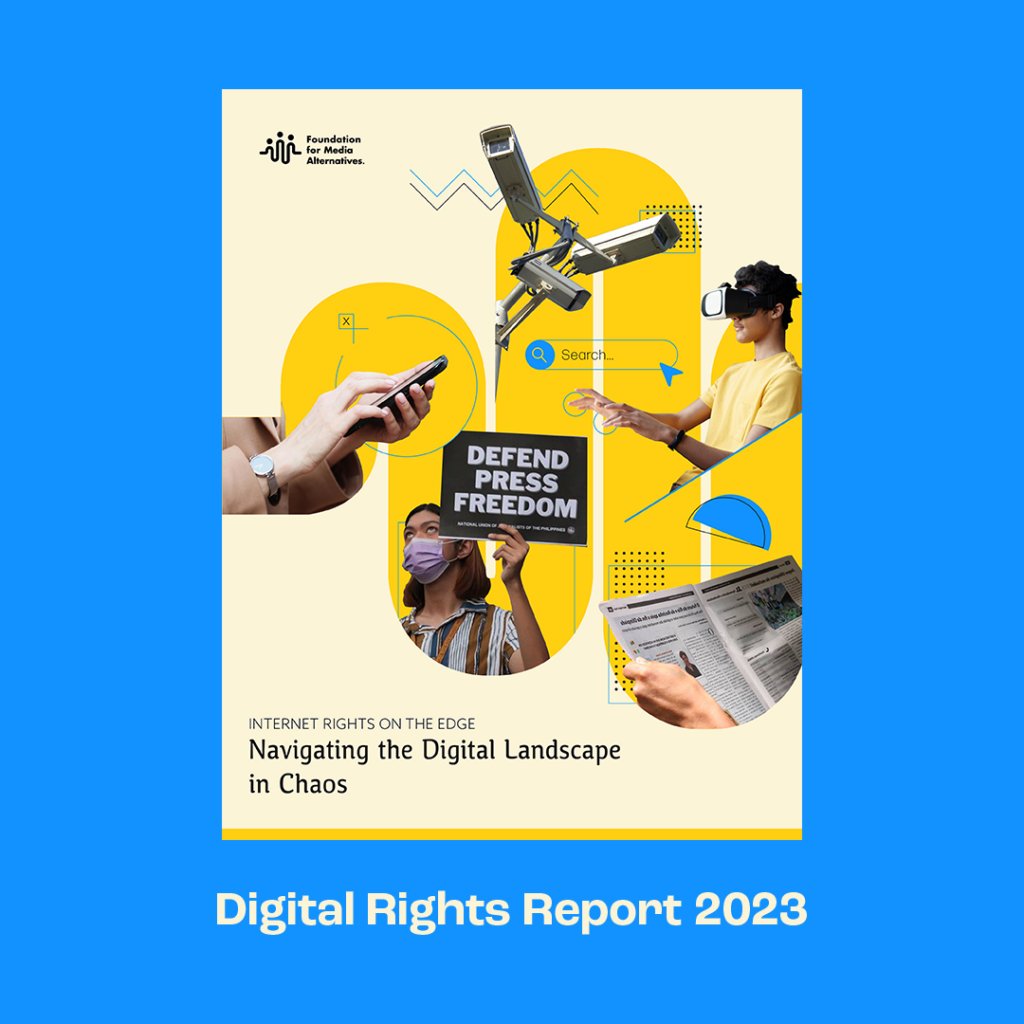
On May 27, 2024, FMA released the latest iteration of its Digital Rights Report titled “Internet Rights on the Edge: Navigating the Digital Landscape in Chaos,” which delved deep into how technology, especially the Internet, responded to the urgent crises that defined the year 2023.
From the ongoing genocide in Gaza to the power struggle unfolding in the Philippines, the Digital Rights Report 2023 detailed how these local and international events affected the way we live our lives on the digital sphere. In order to thoroughly tackle these developments, the report is split into five sections.
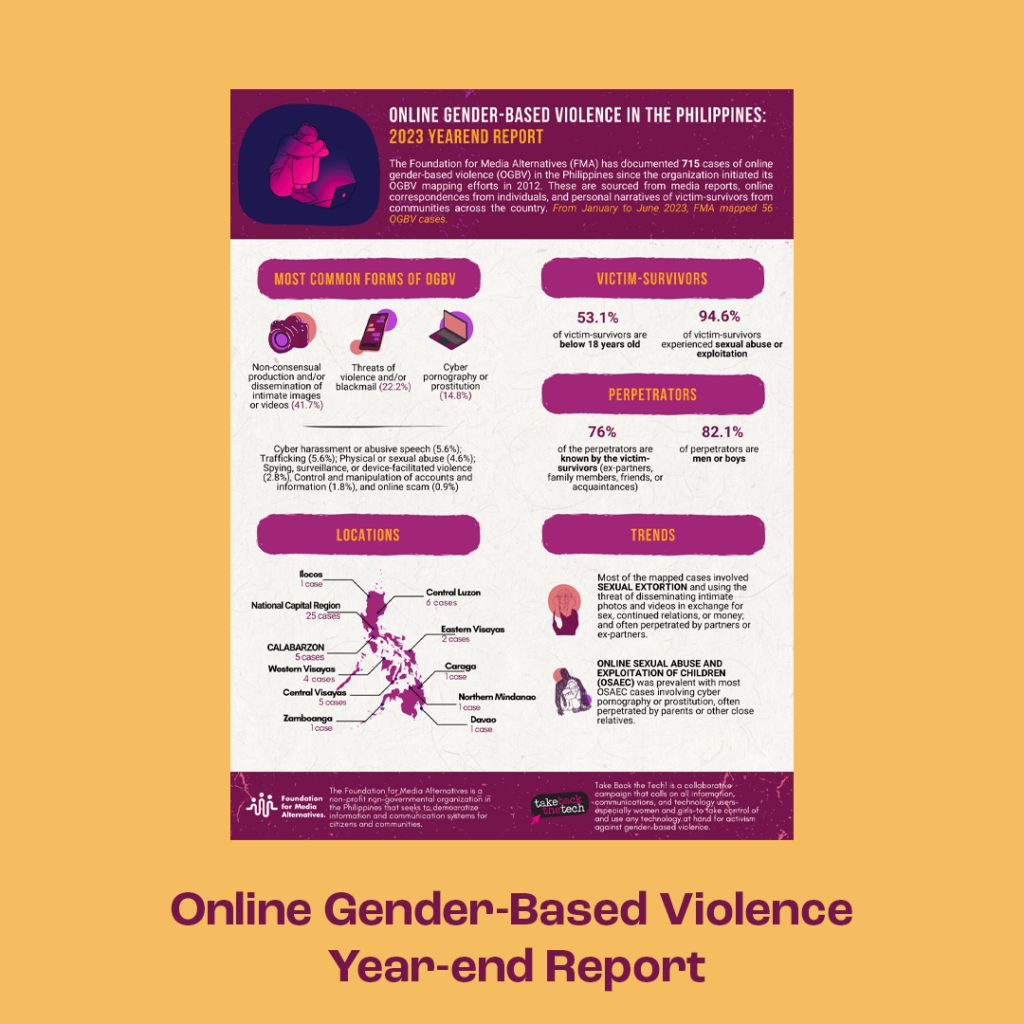
As part of its advocacy to build a safer Internet, FMA initiated an effort to map OGBV cases in the Philippines in 2012 which continues up to present. From January to December 2023, FMA mapped a total of 56 OGBV cases and determined the most common forms and manifestations of OGBV.
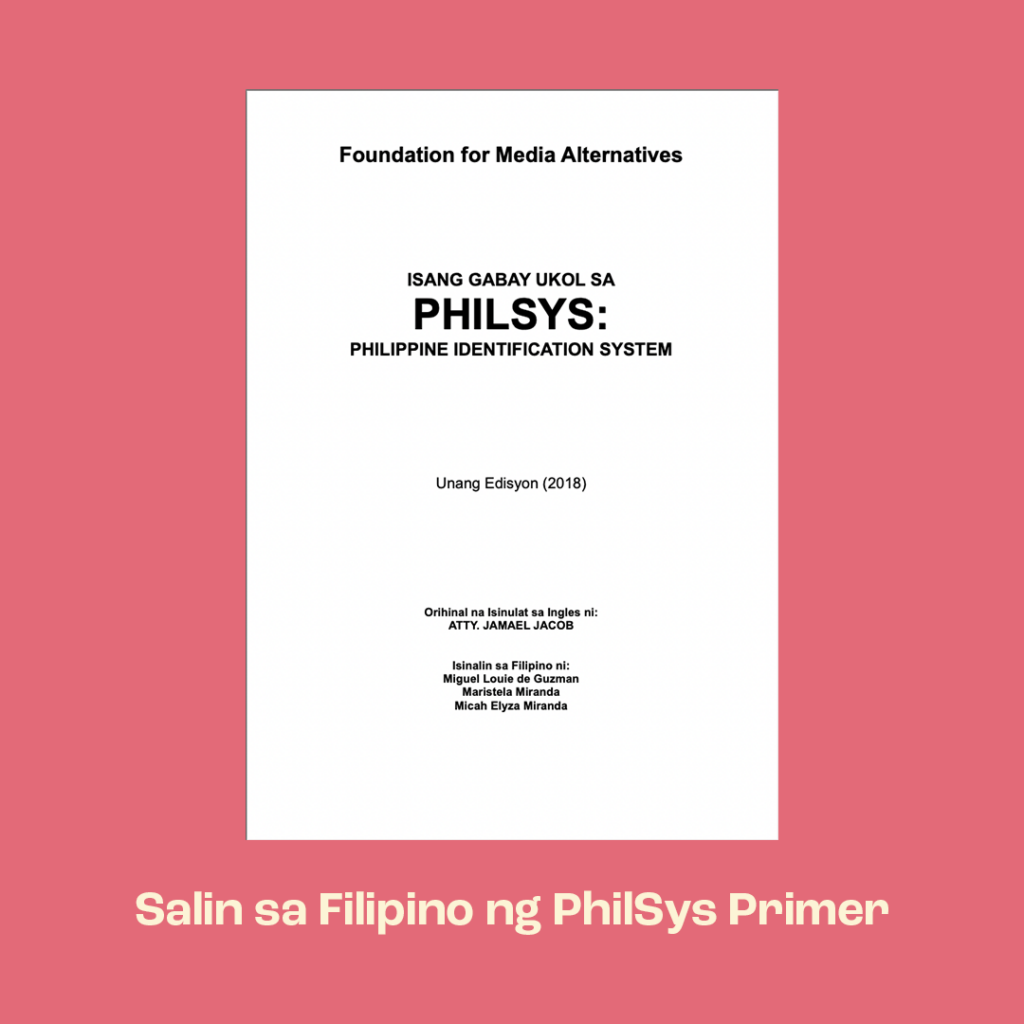
Para palawakin ang pagbibigay-alam tungkol sa PhilSys, ibinabahagi ng FMA ang salin sa Filipino ng PhilSys Primer na nilathala namin noong 2019. Dito, maaaring makita kung ano ang PhilSys, sino ang pwedeng magrehistro para rito, at paano magprehistro. Nakapaloob din dito ang mga impormasyon tungkol sa limitasyon sa paggamit ng PhilSys, pati na rin ang mga karampatang parusa sa maling paggamit nito.
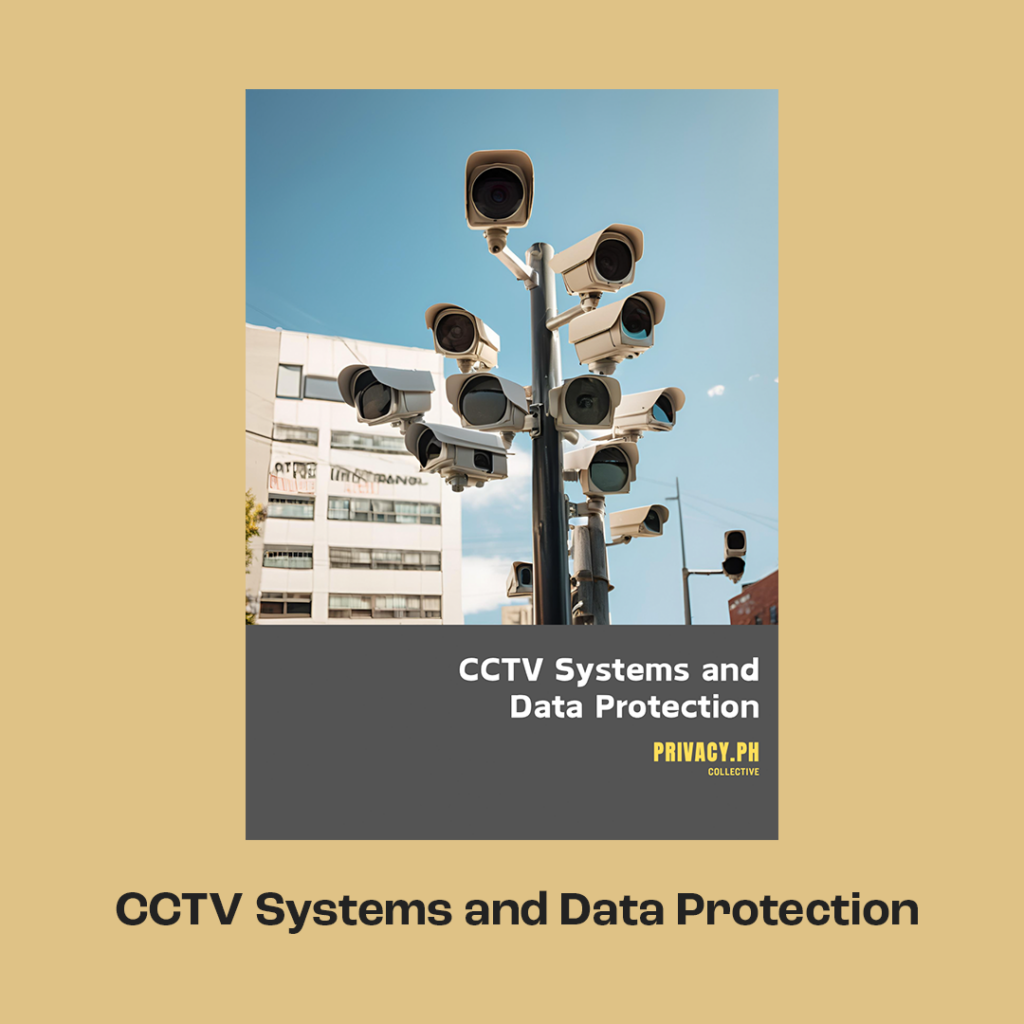
Like it or not, closed-circuit televisions (CCTV) have become a ubiquitous presence in modern cities. As CCTVs record daily public activity, they help monitor crimes and illegal activities, providing a sense of security among citizens. But as much as it can reassure a community’s safety, it can also put them at risk given the wealth of private information a CCTV can hold.
In this FAQ sheet prepared by the Privacy.PH Collective, know more about what makes a good CCTV system, who can access it, and how to properly manage it.
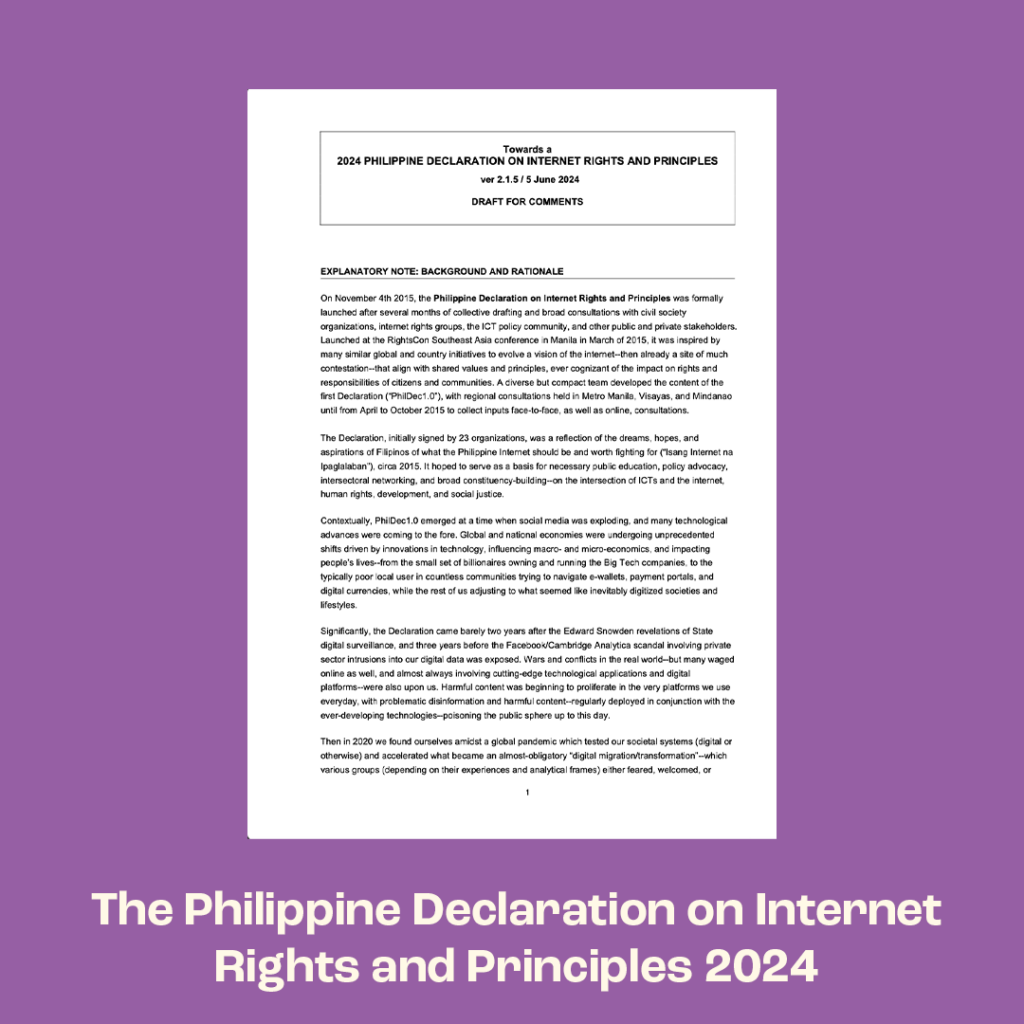
With the many changes the Philippine Internet has gone through, it is only time for FMA to revisit the first Philippine Declaration on Internet Rights and Principles, which was published in 2015, and assess the Philippine Internet anew.
First launched during the Digital Rights Conference last March, the 2024 Philippine Declaration on Internet Rights and Principles looks into the ground-breaking “developments that impact Philippine democracy and digital rights,” such the emergence of artificial intelligence and digital economy; the pervasiveness of tech platforms; worsening disinformation; and climate realities.
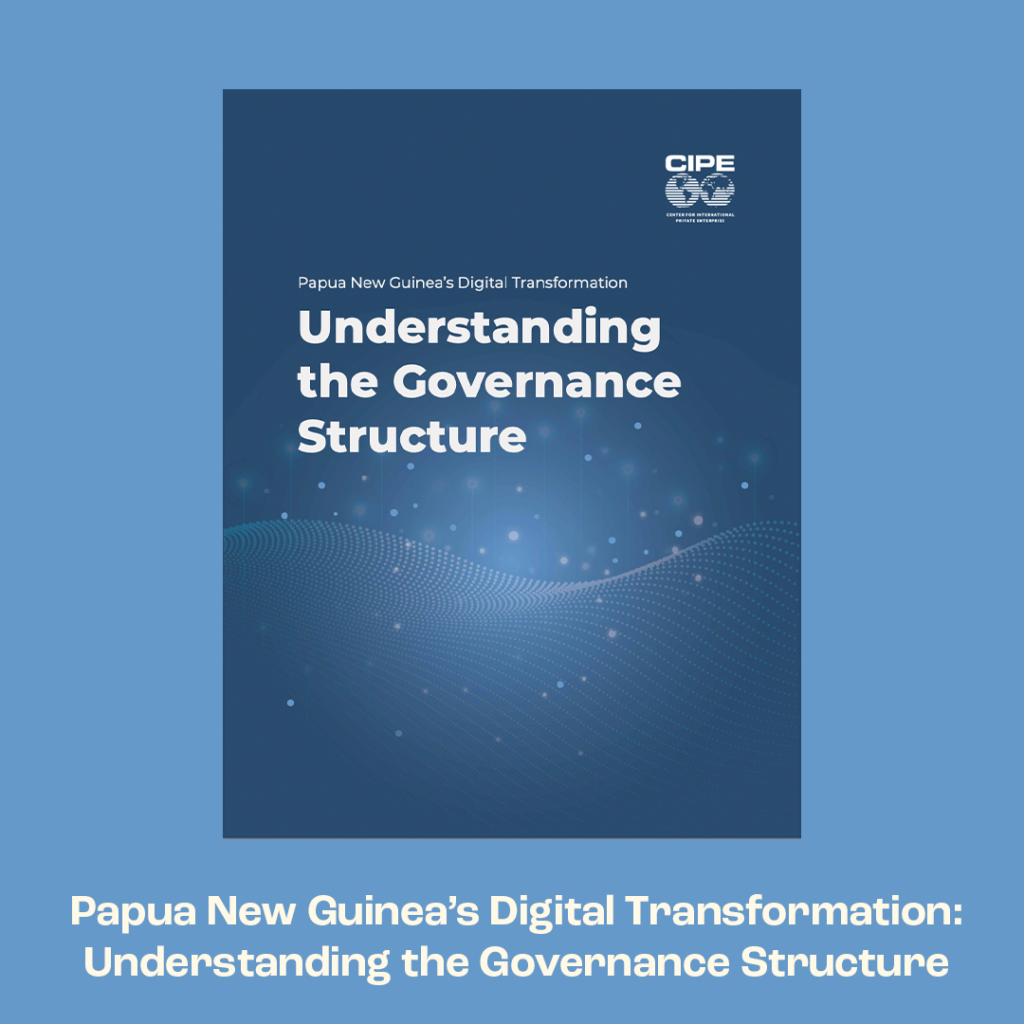
As the Pacific region is rapidly digitizing and embracing digital transformation, the newly available technology can empower Pacific citizens with greater access to information and networks. However, there is a lack of global and Pacific governance standards and norms on the digital economy and digital transformation. Digital governance encompasses the norms, institutions, and standards that shape the regulations around the development and use of digital technologies.
CIPE and the Foundation for Media Alternatives (FMA) analyze the relevant policies, regulations, and institutions concerning digital governance in Papua New Guinea (PNG) through a legal analysis and consultations with key PNG digital stakeholders. This report provides a baseline assessment and understanding of the current governance structure of PNG’s digital transformation and identifies key governance gaps and needs.
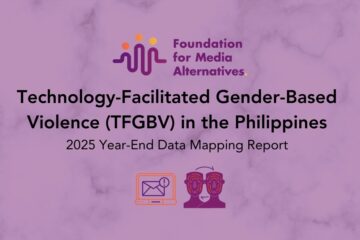
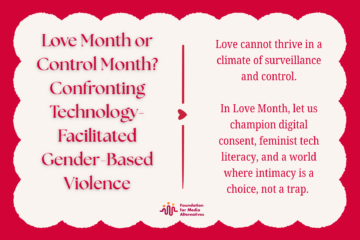
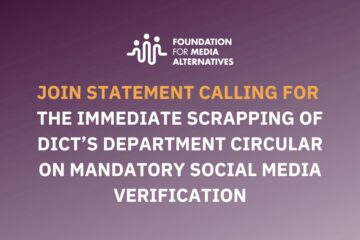
0 Comments